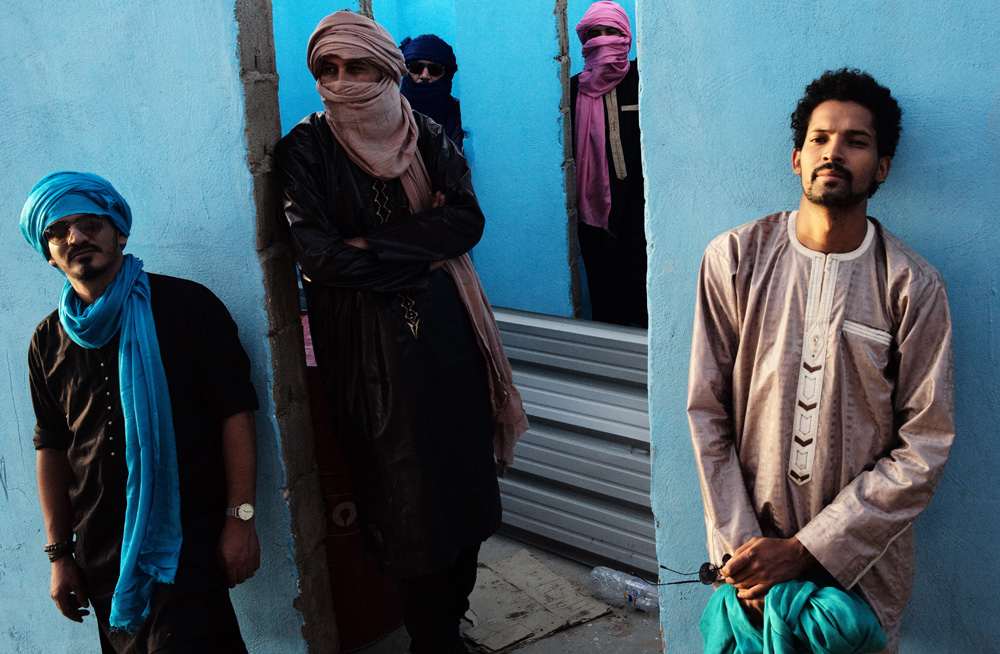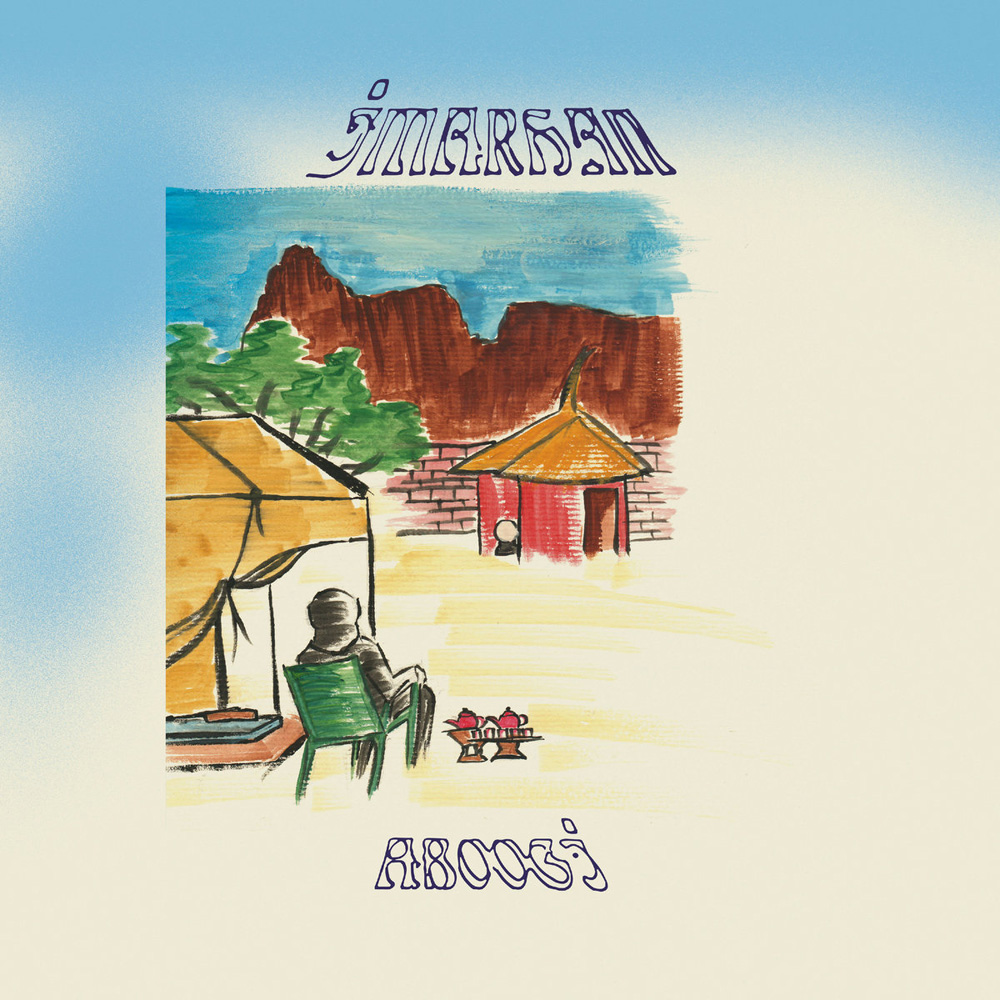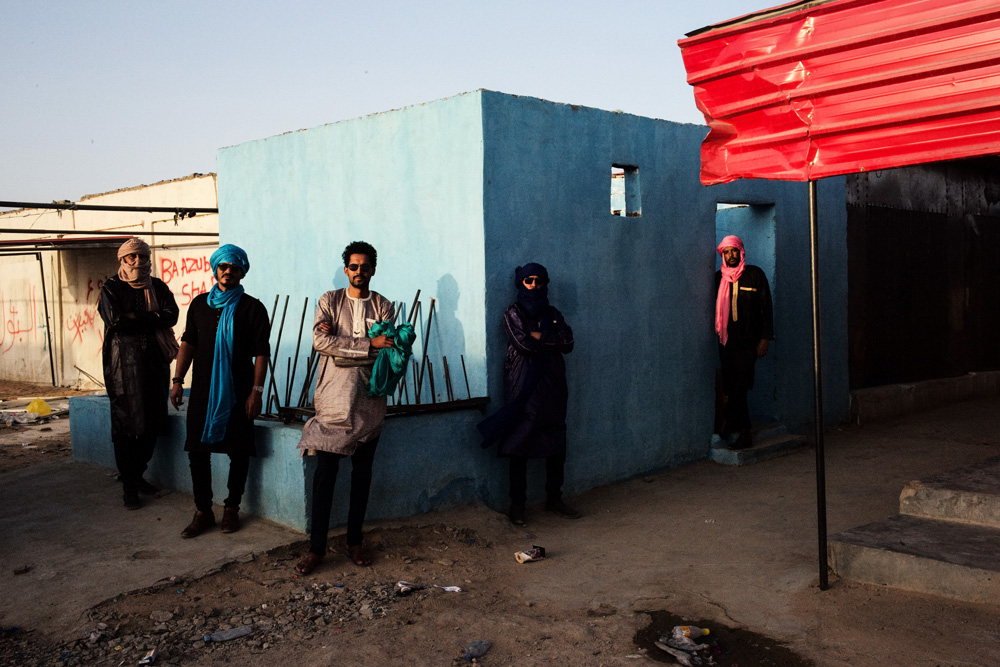Imarhan - Aboogi (City Slang, 2022)
In early 2019 the members of Imarhan began literally laying the groundwork for their third album. The Tuareg quintet was building a professional recording studio, the first ever in their home city of Tamanrasset in Southern Algeria, from the ground up.

By March of 2020 the studio was filled with high-end audio gear otherwise inaccessible to the vast majority of musicians in much of the Saharan region. The group christened it Aboogi, named for the first semi-permanent structures their nomadic forebears built when establishing settlements and villages, and began tracking the first album they were able to record on their native soil. It seemed only natural to also call the resulting collection of songs Aboogi, a nod to the new collective space they had established, as well as the resilience of their culture and communities.
The diversity, beauty, and struggles of life in Tamanrasset are reflected in the songs on Aboogi.
Following the exhilarating, eclectic Temet (2018, City Slang) – which OkayAfrica declared “doesn’t just take the next step in Tuareg music; it sends it into hyperspace” – Imarhan has made an album that is as serene and open as the desert it emerged from.
“Aboogi reflects the colors of Tamanrasset, what we experience in everyday life,” says bandleader Iyad Moussa Ben Abderahmane, aka Sadam. “We give space to the wind and the natural energies, to the sun and the sand. We want to express their colors through music.” There is incredible warmth embedded in these steady, lilting rhythms and patiently strummed acoustic guitars, derived not just from the natural environment but from the community that surrounds them. That warmth may come from the Saharan sun and those living under it, fostered by many generations of musicians that came before them, but it emanates outwards as Imarhan become leading ambassadors for their people and culture around the world.

As they have brought this music to new audiences in far-flung places, Imarhan’s musical community has also become global.
Aboogi features collaborations with Sudanese singer SulafaElyas, who contributes a gorgeous verse in Arabic on the mournful “Taghadart,” and Super Furry Animals’ Gruff Rhys sings of the value of kinship on “Adar Newlan” in his native Welsh. Their local Tamanrasset community joins in as well, including Tinarwen’s Abdallah Ag Alhousseyniand the poet Mohamed Ag Itlale, also known as Japonais, a pillar of the city’s artistic community who passed away shortly after these recordings were made. Imarhan’s musical world has always been expansive, based in the traditional sounds of the Tuareg people but fiercely individualistic and embracing of the many varied styles they encounter. On Aboogi they emerge as a truly global group, united with their collaborators in a spirit of resistance and social change.
Though the backbone of Imarhan’s music is based in the traditional rhythms and flourishes of Tamasheq wedding bands and the Assouf music pioneered by Tinariwen, Imarhan’s songs are thoroughly contemporary, bridging the past and future. On “Assossam” they sing together in one voice of the frustrations of the Tuareg people in post-colonial Southern Algeria, economically disenfranchised by their government as money and power are concentrated in Algiers two thousand miles to the north. “Adar Newlan” touches on the struggles of the young people of Tamanrasset: “The sons of my country are exhausted,” sings Sadam in Tamasheq, referencing oppressive laws that end up imprisoning many young men who are forced to work while struggling to simply survive.

But still they draw on ancestral texts, such as on “Tindjatan,” which tells the story of a great defeat suffered by a Tuareg community during a war before French colonization, The song calls for bravery and solidarity, even in the face of ruin, as guitars trace circular patterns over insistent hand claps. “You must be in solidarity with your people at all costs, until the end,” says Sadam. This wisdom, like the music, becomes meaningful when passed down again and again, made new by each successive generation.
These may be heavy topics, but the featherweight, festive music on Aboogi belies its fierce sense of conviction and justice.
Therein lie the complexities that make Imarhan’s music so prescient – beauty and tranquility intermingle with strife and heartache, creating a dynamic view of life for those subjugated by over a century of colonialism and lopsided revolutions but blessed with extraordinary community, art, and culture. With this album, and with the new studio that shares its name, Imarhan have opened their arms to those around the world who share their sense of conviction and open-mindedness, ready to build relationships with artists and audiences of all generations and backgrounds based on a deep trust in themselves and each other. “Please,” sings Sadam on “Taghadart,” “safeguard my trust, from now until the end of time.”
City Slang and NMR (photo: Fehti Sahraoui)
















